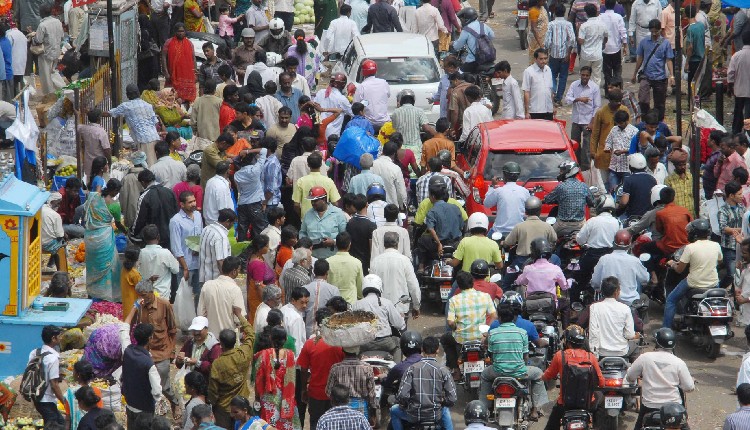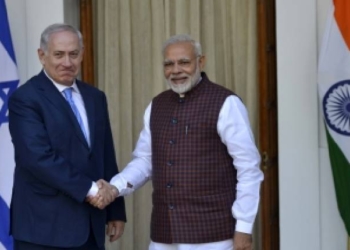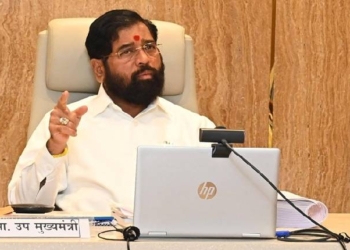New Delhi: Finance Minister Nirmala Sitharaman has made a provision in this year’s interim budget to constitute a High Power Committee to comprehensively consider the challenges arising from rapidly increasing population and demographic changes. Probably this is the result of the continuous voice being raised for population control across the country.
This is why on August 15, 2019, on the occasion of the first Independence Day after the formation of his second government, Prime Minister Narendra Modi appealed to the nation from the ramparts of the Red Fort for population control to strive for a good future for their next generation by becoming responsible parents.
Before making any kind of policy regarding population control, it was necessary to abolish different personal laws and implement a uniform civil code for all communities. It was started by the Uttarakhand government of Pushkar Singh Dhami with the formation of an expert committee to prepare the draft of the Uniform Civil Code in the year 2022. After long discussions with the people of Uttarakhand and stakeholders, the draft of the Uniform Civil Code, Uttarakhand, 2024, submitted by the Expert Committee to the Government of Uttarakhand, was passed by the Uttarakhand Assembly on February 7, 2024. At present, the work of preparing its rules and regulations is being done by another committee. Soon after the rules are prepared, the Uniform Civil Code will be implemented in Uttarakhand.
Many other states and central governments are also waiting for the same. Now the eyes of the country are on Prime Minister Narendra Modi’s address from the ramparts of the Red Fort on August 15, 2024, on the occasion of the first Independence Day after the formation of his third government, whether he will be able to make laws like Uniform Civil Code and Population Control in the country during his tenure of this coalition government?
To fulfil his dream of One Nation One Election, it is also necessary that Prime Minister Narendra Modi should quickly complete the census which has been postponed since 2021 and constitute a Delimitation Commission. Demographic changes also affect Indian politics.
In some Lok Sabha, MPs are elected with less than one lakh votes and in others with more than 20 lakh votes. Demographic change will also be a big challenge for the new delimitation. Probably, keeping this demographic change in mind, Finance Minister Nirmala Sitharaman has announced the formation of a High Power Committee. But no information about the formation of that committee is available yet. Is this because the government is not with full majority this time? Will this topic be put on the back burner again? The idea of forming such a committee would undoubtedly be with a vision of a bright future for the country by addressing the challenges arising from the rapidly increasing population and demographic changes.
But due to political constraints, our country, which was the first in the world to initiate family planning, has today become the most populous country in the world. Will the efforts being made by the Central Government on this subject again fall prey to political compulsions? If the Central Government wants to realise its Nation First sentiment in the real sense, then it should not stop its efforts in this direction, leaving aside the compulsions of the coalition government.
The recent incident in Hathras has shocked all the countrymen. While all the political parties are accusing the government of not making proper arrangements, they must also consider how the people of our country get trapped in the trap of blind devotion and fall prey to the sorceries of fake babas. Just think that those people who do not understand what is right and what is wrong for their and their children’s future and those who are unable to make the right decisions for their family properly, they are the ones who elect the leaders to run the country.
Prime Minister Modi also said in his address on August 15, 2019, that the number of children in the family should be according to one’s resources and the same applies to the country as well. The country, which has about 2.4 per cent of the world’s land area and only 4 per cent of water, is home to about 18 per cent of the world’s population. The main reason for many problems spreading in India like unemployment, poverty, hunger, pollution, and illiteracy is the population of the country not being commensurate with the resources. Those who point to India’s population as the biggest reason for it becoming the world’s third-largest economy must look at the resources and population of the developed countries of the world.
Today, while most of the edible foods in our country are not pure, the potable water and the air to breathe have also become polluted. Due to these reasons, today our country has become the capital of diseases like cancer and problems like pollution in the world. Due to the increasing population in India, the cultivable land is continuously decreasing and due to family partitions, the size of the fields is becoming smaller. This is the biggest reason for the problems of farmers in the country.
But our leaders are busy only treating the symptoms instead of treating the underlying disease. Every political party is busy distributing taxpayers’ money in the name of getting votes. An example of which we have clearly seen in the lines to take Rs 8,500 after the results of this Lok Sabha election. There is a need for the intellectuals of the country to stop only earning money for their future generations and start putting pressure on all political parties and their leaders to enact population control laws, otherwise, in the future, their children will not be able to use the money earned by them.
Now it is up to the intellectuals and taxpayers of the country to think about what kind of India they want to leave behind for their children. Today, every intellectual, taxpayer, woman and youth of the country is looking towards Prime Minister Modi with hopeful eyes to see what he has to say on the occasion of this Independence Day on the subject of the challenges arising from the rapidly increasing population and demographic change.
(IANS)
















